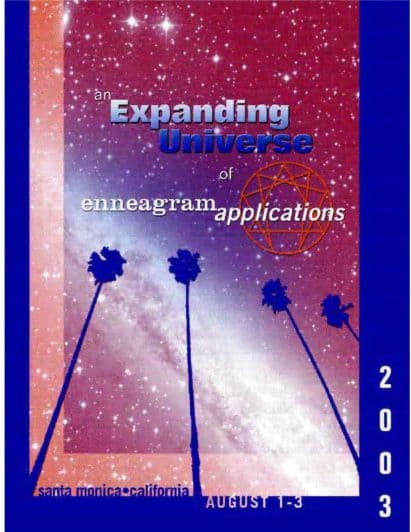We will explore how the three steps of the creative process – Conceptualization, Visualization, and Manifestation – correlate with the Thinking, Feeling, and Sensing Centers of the Enneagram. We will consider each type’s relationship to the creative process, based on its relationship to the three centers, and identify both strengths and weaknesses. We will see how our approach to the creative process affects learning, teaching, and problem solving. Using handouts, examples, and hands-on exercises, participants will learn how to give equal time to all three steps, in order to better access and express their creative potential in all areas of their lives.
Joycelyn Campbell, a former substance abuse counselor, has led workshops on the Enneagram, creativity, and change for 13 years and publishes a quarterly newsletter, Soul Cycling, . The Rev. Elizabeth W. Libbey, 2000 and 2001 IEA presenter, is a retired Episcopal priest who has been leading Enneagram and spirituality workshops/retreats for ov er 15 years. www.InSpiritReSources.com, . Campbell and Libbey co-created ENNEAJOURNALING: Writing for Transformation, which uses directed journal writing as a tool for change.


